PV: Sir, through your visit to Vietnam at the end of November 2023, from the perspective of someone with a lot of experience in consulting on implementing nature-based climate change response solutions in many countries, what do you think are Vietnam's strengths?
Mr. Patrick Suckling: Vietnam has outstanding potential to take the lead in applying nature-based solutions, as you have done in agriculture and other fields over the past 20 years.
Vietnam is one of the 10 richest biodiversity hubs on Earth, with vast forests and the highest levels of marine biodiversity in the world . Vietnam also has large areas of mangroves and seagrass beds, making it particularly suitable for high-impact NBS projects. These types of “blue carbon” projects sequester carbon 40 times faster than reforestation and for longer periods of time.
This means that Vietnam has great potential to deploy nature-based solutions (NBS) to earn carbon credits, a tool that is being actively developed by international and regional companies such as Singapore, Japan and South Korea to meet the world's demand. We note that Vietnam is the first ASEAN country to sign a Memorandum of Understanding (MOU) with Singapore on the coordination of carbon credit projects.
History has shown that farmers can adapt quickly and seize opportunities with new crops and farming methods. NBS solutions can be seen as an extension of this activity – that is, changing land use to reduce/remove/storage greenhouse gas emissions to generate revenue from carbon credits. In addition, Vietnam has a high need for biodiversity conservation as it is one of the regions with the highest rates of endangered species in the world.
In the coming decades, the world is likely to secure global finance to create maximum impact to accelerate decarbonisation and reverse biodiversity loss. Vietnam has both. What needs to be done in the coming period is to ensure that Vietnamese companies and the Government can receive expert advice and support to seize the opportunities.
PV: Climate change response activities must simultaneously create economic development momentum, serving the common development goals of the country, economic sectors or businesses. How do nature-based solutions meet these requirements, sir?
Mr. Patrick Suckling: Applying nature-based solutions will help Vietnam and other countries in the region build a future-oriented economy. That means ensuring sustainable growth goals while catching up with the global trend towards net zero emissions and being friendly to nature.
As decarbonization accelerates globally, Vietnam will also need to focus on transitioning its economy away from high-emission activities. Vietnam’s energy system also needs to decarbonize if it is to remain globally competitive as an energy producer.
In the future, investments will be accompanied by a requirement to increase climate- and nature-friendly solutions. This will also be a new area that many large companies and investors are looking for. Adjustments to create suitable conditions for investment exploitation depend on how Vietnam establishes the first carbon market to facilitate international credit trading (expected to be officially operational from 2028). In addition, it is how Vietnam implements Article 6 of the Paris Agreement. This regulation is shaping the way countries approach emitters, to ensure that both sides meet their greenhouse gas emission reduction commitments and create opportunities to export carbon credits, avoiding double counting of emission reduction results.
The focus on producing high-quality credits is important, as an integral part of these types of projects is the long-term impact on local communities. The benefits from these projects will remain in Vietnam, in the form of infrastructure, capacity building or new revenue, even if the carbon credits from the project are exported abroad.
Nature-based solutions can provide new jobs and skills, link to Vietnam’s thriving innovation scene, attract new technology applications and resources from new international donors to Vietnam, and establish relationships that allow for multi-directional flows with different impacts.
PV: Although it is a natural solution, it still requires a certain level of human intervention. Can you share experiences from other countries that you feel are suitable for Vietnam?
Patrick Suckling: Nature-based solutions offer a range of actions to protect, manage and restore ecosystems to address other societal issues. At the core of nature-based solutions are benefits to human health and biodiversity. This is also the basis for defining the International Union for Conservation of Nature (IUCN) NBS concept, which has now become popular.
If a solution only promotes activities that benefit nature but harm people, or conversely, a solution that promotes human benefits and harms nature, it is not consistent with the established criteria for NBS.
Human interventions and activities in implementing NBS solutions play a very important role and need to be carefully planned. In many cases, these interventions involve modifying the biophysical environment of each location, through human management of natural landscapes, seascapes and cities. The diversity of solutions that are included in NBS is characterized by a people-centered approach, from tree planting and wetland restoration to coral reef and river conservation through building barriers, raising awareness and promoting education, improving knowledge of local authorities and communities.
People play a key role in NBS. However, based on experience in many projects in Asia and globally, Pollination identifies the factors to consider when implementing NBS as when and how to involve stakeholders, as well as determining which solutions require human intervention. Early and ongoing involvement of local communities makes restoration projects more likely to succeed, ensuring the best possible restoration of the natural state and the goals NBS is working towards in the future.
It is local stakeholders who are most connected to nature and best placed to decide which NBS is appropriate for a particular location, whether in Vietnam or elsewhere.
Vietnam is a country with a large number of smallholder farmers and rural workers. Mobilizing this workforce is a challenge but also a great opportunity. Pollination has noted similar conditions when participating in implementing a blue carbon project in the Indus Delta region of Pakistan. This project involved thousands of local people in the process of planting, monitoring and caring for mangrove forests, thereby reducing 250 million tons of CO2 emissions over 60 years and creating 21,000 jobs. The project also generated high-quality carbon credits that are being purchased by international companies such as Microsoft and Respira.
PV: Sir, what should Vietnam do right now to prepare to implement nature-based solutions?
Mr. Patrick Suckling: Nature-based solutions require the implementing entity to have the capacity to sustainably manage and use natural tools, as well as the process of dealing with a series of environmental and social issues such as climate change, water security, water pollution, food security, human health and biodiversity loss.
Realizing the full potential of NBS will depend on how Vietnam and its neighbors establish policy frameworks to govern and shape emerging environmental markets. For example, Singapore has enacted regulations that allow domestic companies to use credits from overseas carbon projects to reduce carbon taxes paid in the country.
By increasing its participation in carbon credit projects, Vietnam is fully capable of achieving its Paris Agreement goals faster, and can also export carbon credits to countries in need of purchasing them, such as Singapore.
Vietnamese businesses also have the potential to invest in such projects to reduce emissions in key industries while ensuring a sustainable energy transition. If we look at sectors where Vietnam has strengths, such as manufacturing and agriculture, we can see that there will be a need for changes in processes and business models in the future.
While decarbonizing these sectors is absolutely necessary to create internationally competitive economic dynamism, the costs of doing so are not small. Carbon markets offer a new source of revenue that can help ease that transition. Moreover, they offer Vietnam an opportunity to take a leading position in a rapidly growing market. The global voluntary carbon market alone is estimated to increase fivefold in size by 2030, reaching a total value of $40 billion per year.
In Vietnam, as well as in neighboring countries, we need to better understand how to manage carbon credit exports. It is important to note that these export credits are not “double-counted,” meaning that when credits are traded abroad, they are not counted toward the emission reduction target that Vietnam committed to when joining the Paris Agreement.
Vietnam is one of many countries globally with great potential to contribute to the field of nature-based solutions, however, appropriate mechanisms will be needed to ensure that foreign investment in projects is encouraged, while ensuring that revenues and profits remain in Vietnam, helping to boost the economy, the lives of Vietnamese people and the environment.
Developed countries are now calculating this issue. If a country wants to earn too much from such projects, it could cause investors to move elsewhere. But if it earns too little, exporting carbon credits would bring big profits to international developers but less benefits to Vietnam.
PV: Thank you very much!
Source



![[Photo] Ready for the top competitions of Vietnamese table tennis](https://vphoto.vietnam.vn/thumb/1200x675/vietnam/resource/IMAGE/2025/5/18/9c547c497c5a4ade8f98c8e7d44f5a41)
![[Photo] Many young people patiently lined up under the hot sun to receive a special supplement from Nhan Dan Newspaper.](https://vphoto.vietnam.vn/thumb/1200x675/vietnam/resource/IMAGE/2025/5/18/6f19d322f9364f0ebb6fbfe9377842d3)
![[Photo] Party and State leaders attend the special art program "You are Ho Chi Minh"](https://vphoto.vietnam.vn/thumb/1200x675/vietnam/resource/IMAGE/2025/5/18/6895913f94fd4c51aa4564ab14c3f250)




















































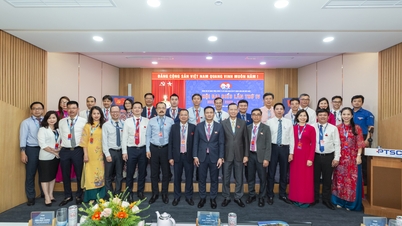










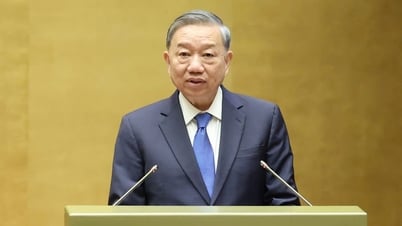











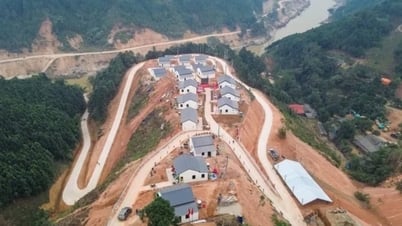

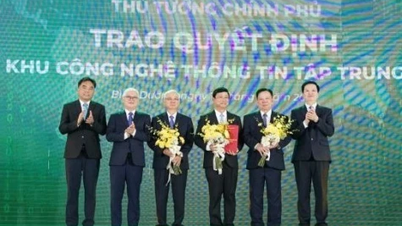





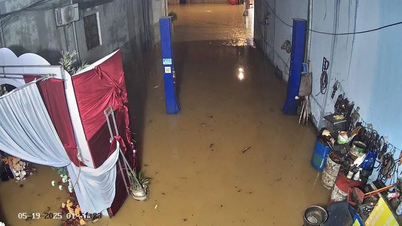












Comment (0)